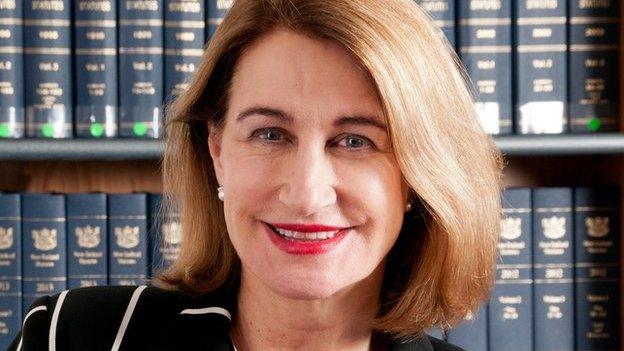Abuse inquiry chairwoman asked to explain resignation to MPs
- Published
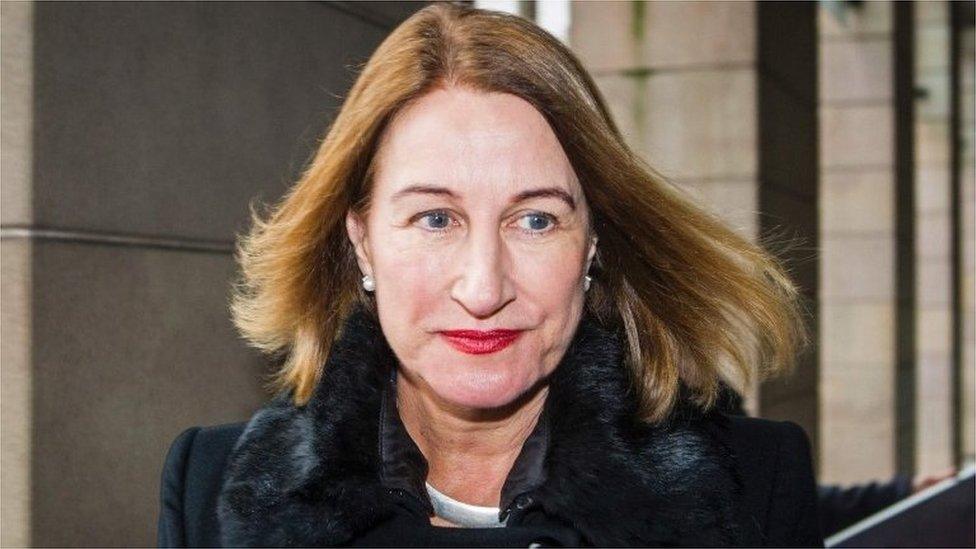
Dame Lowell Goddard has resigned as the head of the independent inquiry into child sexual abuse
The chairwoman of the independent inquiry into child sexual abuse has been asked to appear before MPs to explain why she has resigned.
It was "not enough" for Dame Lowell Goddard to resign and leave, said Home Affairs Committee chairman Keith Vaz.
He called for a "thorough explanation", and said the "only way" to move forward was to hear from Justice Goddard.
The New Zealand judge has not yet given full reasons, but she said conducting such an inquiry was "not an easy task".
Campaign groups said a replacement was needed "urgently" after Justice Goddard became the third inquiry head to quit.
Home Secretary Amber Rudd said the inquiry would continue "without delay" and in the absence of a new chair.
The inquiry was announced in July 2014 to examine claims of abuse made against public and private institutions in England and Wales.
BBC home affairs correspondent Tom Symonds said several sources had told him there had been "tension" within the inquiry, with one suggesting Justice Goddard felt she was not getting the support and "loyalty" her job required.
The inquiry is meant to support victims and survivors of sexual abuse, and Mr Vaz said it was important to reassure them in the wake of Justice Goddard's resignation.
He said he would write to ask her to appear before MPs to explain her reasons.
There was "no better person" to tell MPs what progress the inquiry now needed to make, he said.
Mr Vaz said Justice Goddard's resignation was an opportunity to look at the "whole shape" of the inquiry - including its purpose, logistics and costs.
'Difficult step'
In a statement, Justice Goddard said she was "confident there have been achievements and some very real gains for victims and survivors of institutional child sexual abuse in getting their voices heard".
She said she took on the role because of her "relevant experience and track record in the area" but admitted that running the inquiry had been difficult.
"Compounding the many difficulties was its legacy of failure which has been very hard to shake off and with hindsight it would have been better to have started completely afresh," she said.
She added that accepting the job had been "an incredibly difficult step to take, as it meant relinquishing my career in New Zealand and leaving behind my beloved family".
The Times reported that Justice Goddard had spent more than 70 days working abroad or on holiday, external during her time in charge.
An inquiry spokesman said the 67-year-old, who was appointed in April 2015, had spent 44 days in New Zealand and Australia on inquiry business and was entitled to 30 days' annual leave.

Analysis
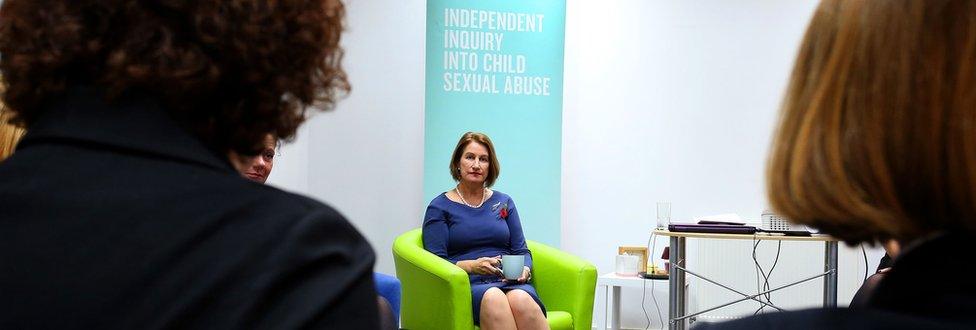
Tom Symonds, BBC home affairs correspondent
One source with knowledge of the inquiry's operations said they did not believe Dame Lowell's departure was linked to the disruption caused to her family life by moving to the UK.
This source said she had moved fully to this country from her native New Zealand, including buying furniture. Her husband is understood to be in Britain too.
Members of the victims and survivors consultative panel, a body which advises the inquiry, have praised her relationship with those who've suffered the effects of child abuse.
But there are unconfirmed suggestions of friction between the inquiry's officials and the chairwoman.
Her departure has thrown the inquiry into crisis, sources say.

Lucy Duckworth, who sits on the victims and survivors panel, said Justice Goddard had done an "incredible job" but the work must continue.
She said panel members met Ms Rudd in London on Friday, and the home secretary "convinced us she is personally committed to the inquiry".
Abuse survivor Lucy Duckworth says resignation of Dame Lowell Goddard is "very frustrating"
Mr Watson said: "We must not let our failure to find a judge with the relevant knowledge and the necessary staying power deter us from progressing with this complex and demanding task."
He said he hoped Ms Rudd would not "attempt to take control of the investigation", saying its independence "must not be compromised".
Phil Frampton, from the White Flowers campaign, which represents several survivors' groups, said he felt Justice Goddard "was out of her depth, from a country where the child protection practices are 20 years behind this country".
Ms Rudd thanked Justice Goddard for "vital role", and added: "I want to assure everyone with an interest in the inquiry, particularly victims and survivors, that the work of the inquiry will continue without delay."
Lord Macdonald on the search for a fourth person to chair an inquiry into UK child abuse.
Former director of public prosecutions Lord Macdonald, now a Liberal Democrat peer, called the inquiry "enormous" and said it was "trying to do too many things".
He said finding a replacement for Justice Goddard would be "extraordinarily difficult" as the job was now seen "not so much as a poisoned chalice as a lethal injection".

Analysis
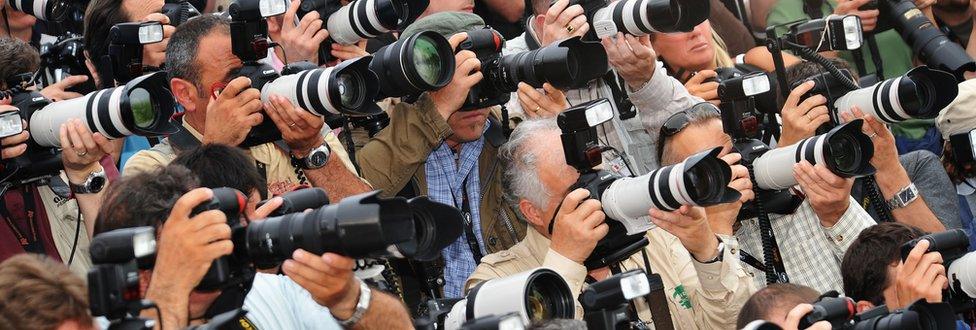
Clive Coleman, BBC legal correspondent
Wanted, highly respected chairperson, available for up to 10 years, robust in the face of press scrutiny, and with no ties to the British establishment.
It's becoming the most toxic job description in public life.
There are two key selection criteria.
The chair needs to have the intellect and experience. It would normally be a senior serving or former judge, used to hearing mammoth amounts of testimony.
Equally important are perception and independence. Victims and survivors must have confidence the chair is divorced from the contentious subject matter and key people who may figure.
That's difficult for a senior British judge, who would be seen part of the establishment.
But recruiting from abroad has also failed.
Taking on the role would define a career, and would mean intense media scrutiny.
Judge, civil servant, academic? Only the brave need apply.

The inquiry was set up to investigate allegations made against local authorities, religious organisations, the armed forces and public and private institutions, as well as people in the public eye.
It had a budget of £17.9m in its first year, funded by the Home Office, with staffing-related costs accounting for 41% of the total.
In July last year it was revealed Justice Goddard was receiving a salary of £360,000, an annual rental allowance of £110,000 and £12,000 a year to cover utilities, while panel members were each receiving £565 a day.
The original chairwoman, Baroness Butler-Sloss, stood down just a week after being appointed amid questions over the role played by her late brother, Lord Havers, who was attorney general in the 1980s.
Her replacement Dame Fiona Woolf resigned following questions over her links to establishment figures.

Abuse inquiry: How we got here
7 July 2014 - government announces independent inquiry into the way public bodies investigated and handled child sex abuse claims. Baroness Butler-Sloss chosen as head
14 July - Baroness Butler-Sloss stands down, saying she is "not the right person" for the job after questions are raised about her late brother, Sir Michael Havers, being attorney general in the 1980s
5 September - Lord Mayor of London Fiona Woolf named the new head of the inquiry
22 October - abuse victim launches legal challenge against Mrs Woolf leading the inquiry, amid growing calls for her resignation after she admits having five dinners with Lord Brittan from 2008-12
31 October - victims' groups tell government officials they are "unanimous" Mrs Woolf should quit. She steps down later that day
4 February 2015 - Justice Lowell Goddard, a serving judge of the High Court of New Zealand, announced as the new head of the inquiry
November 2015 - inquiry begins hearing directly from victims and survivors
4 August 2016 - Dame Lowell writes to Home Secretary Amber Rudd to resign from her post

- Published5 August 2016
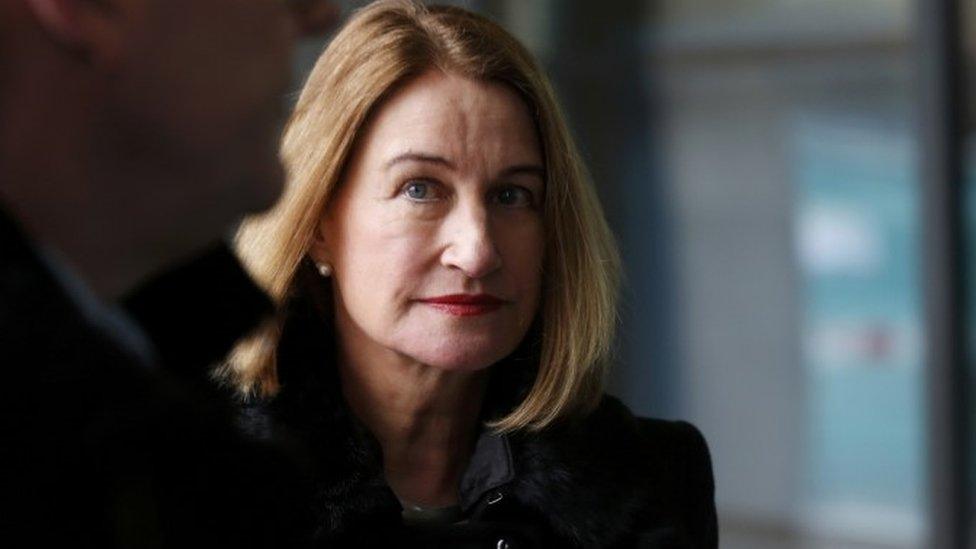
- Published26 July 2016
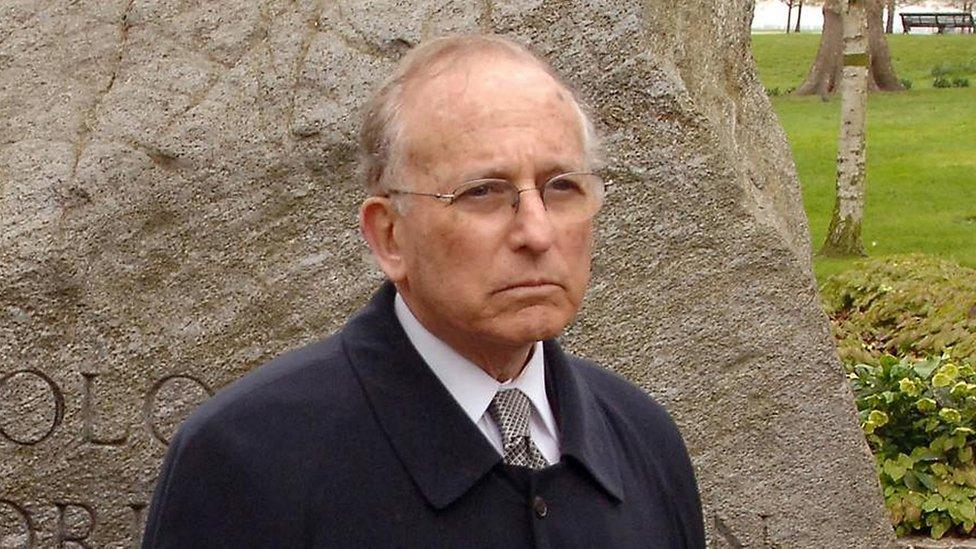
- Published3 April 2016
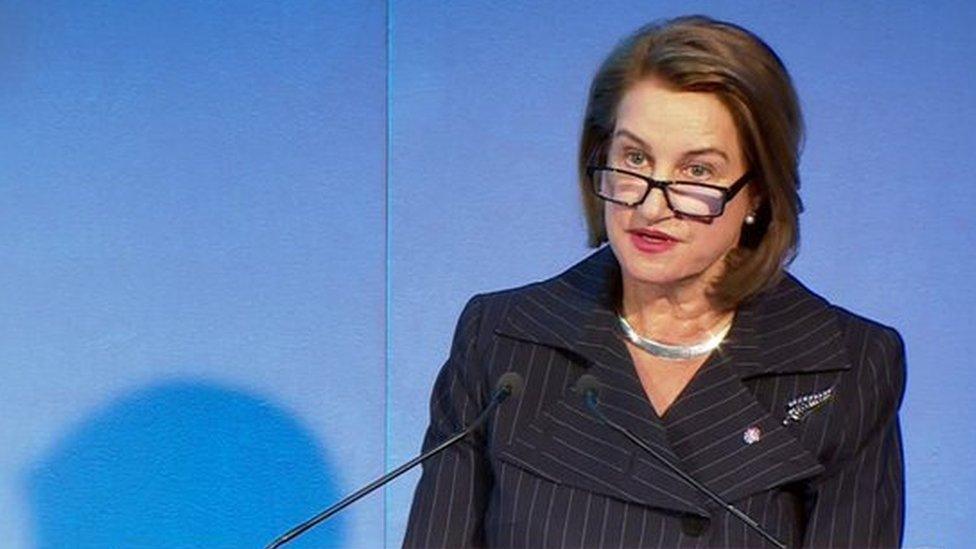
- Published24 March 2016
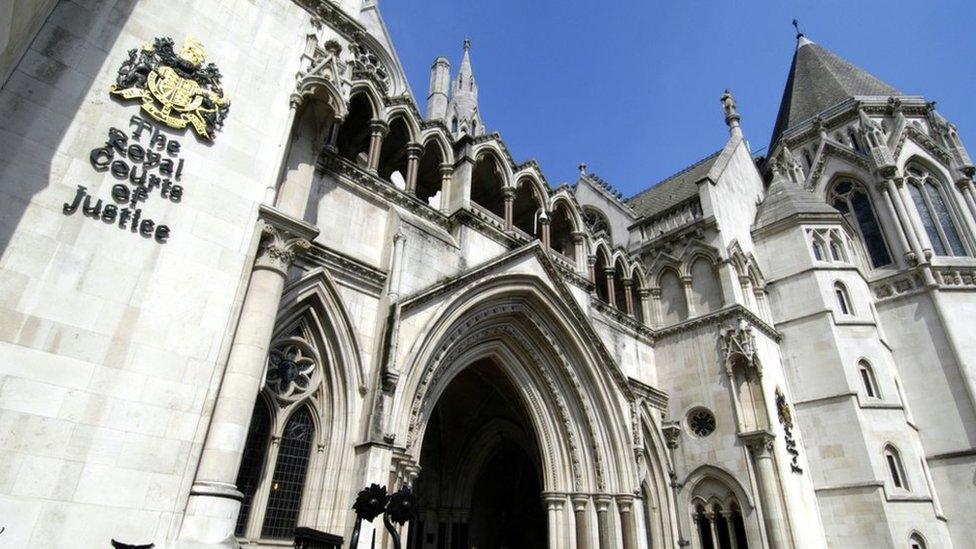
- Published16 March 2016
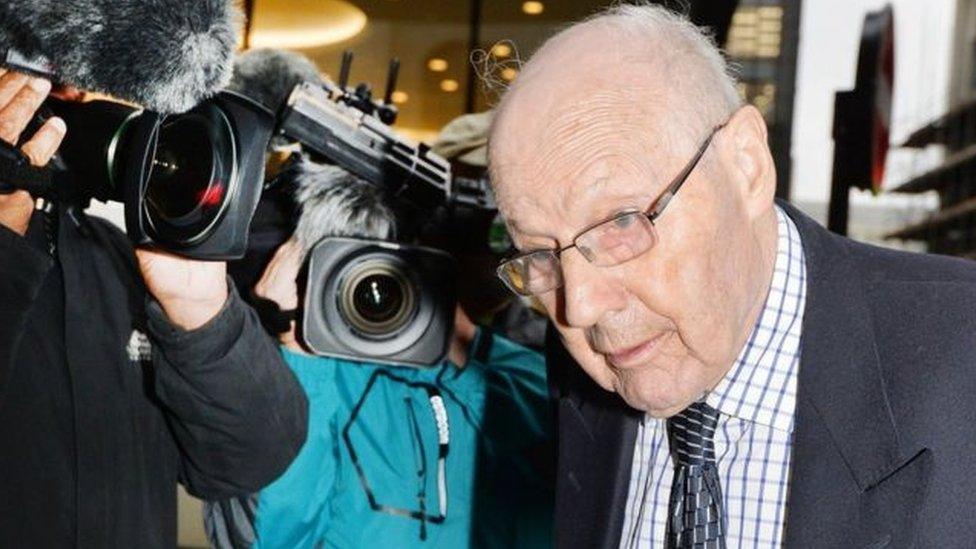
- Published9 March 2016
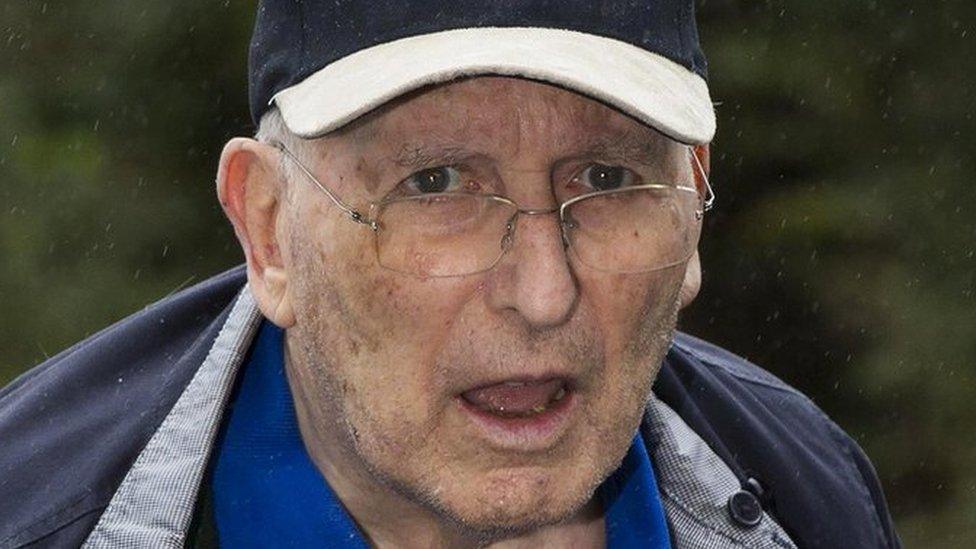
- Published27 November 2015
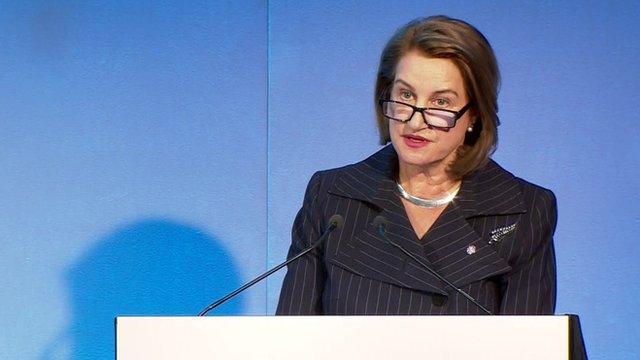
- Published27 November 2015
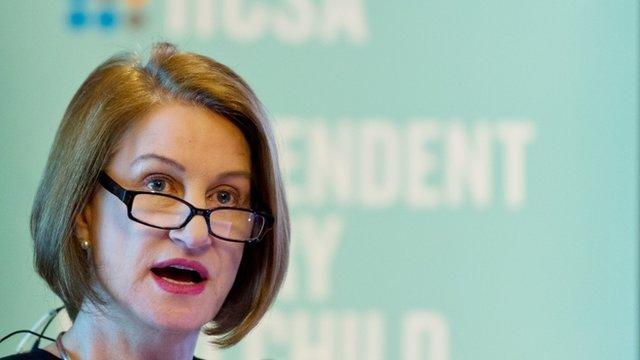
- Published11 November 2015
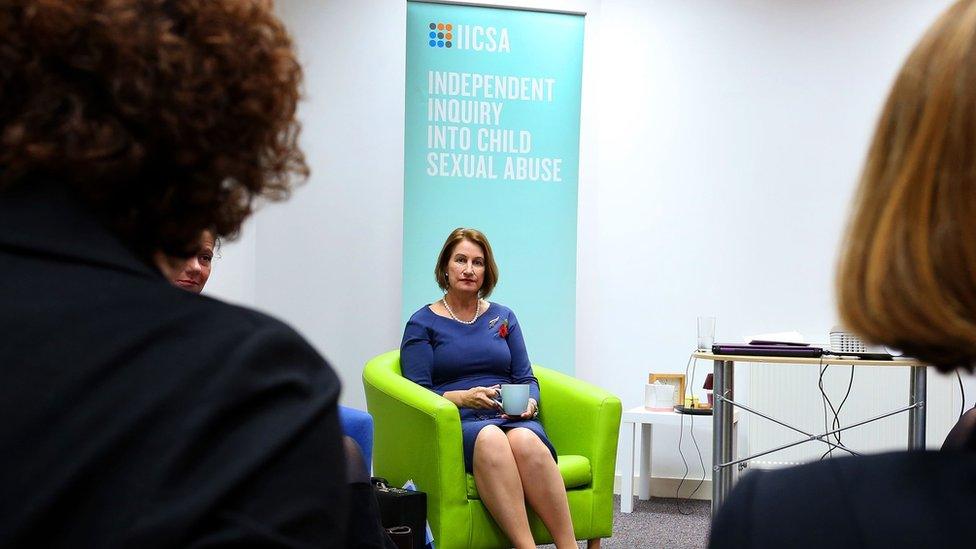
- Published15 October 2015
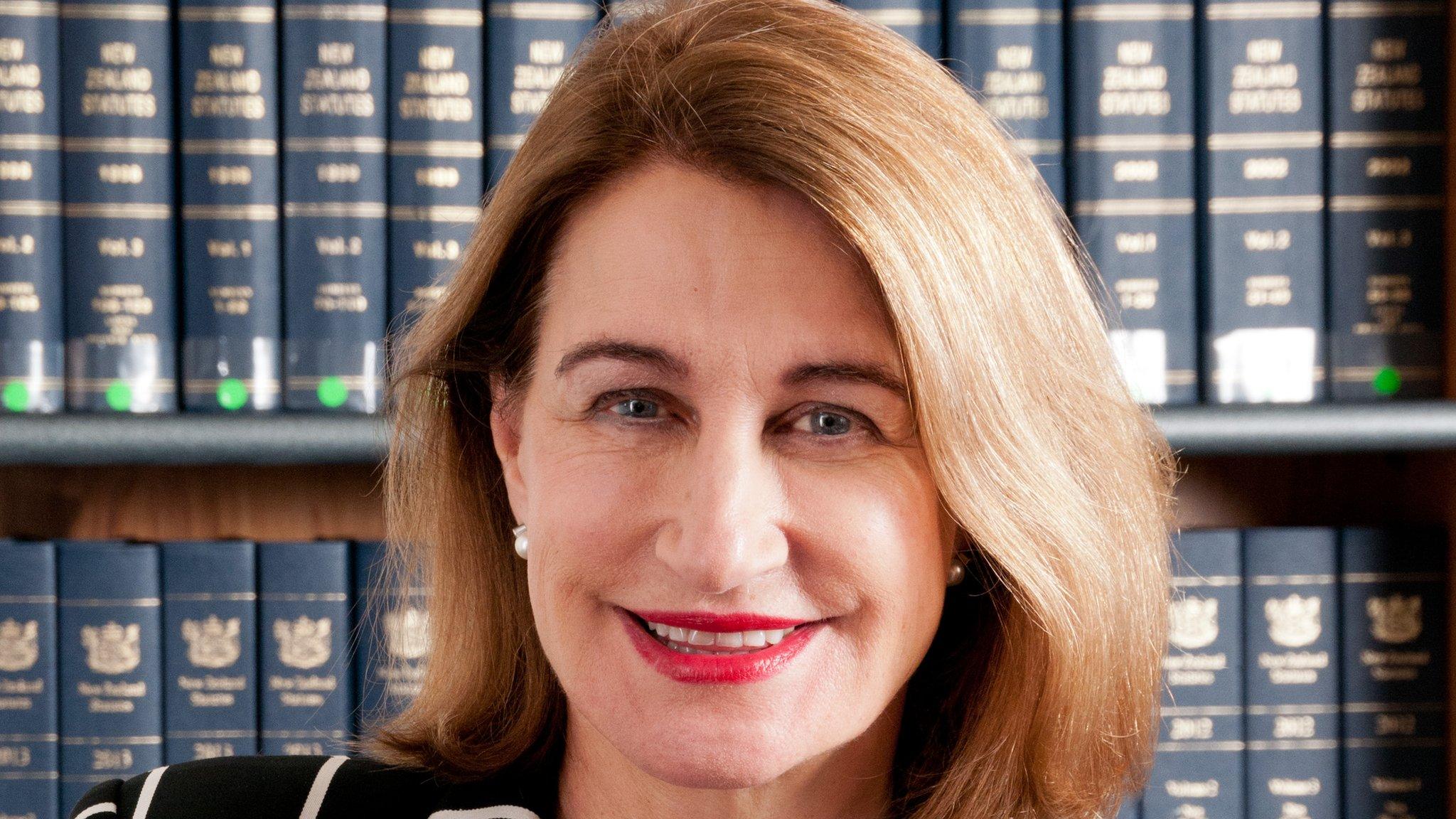
- Published4 August 2016
